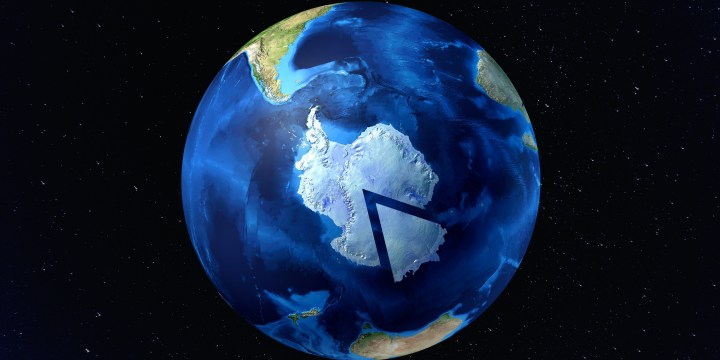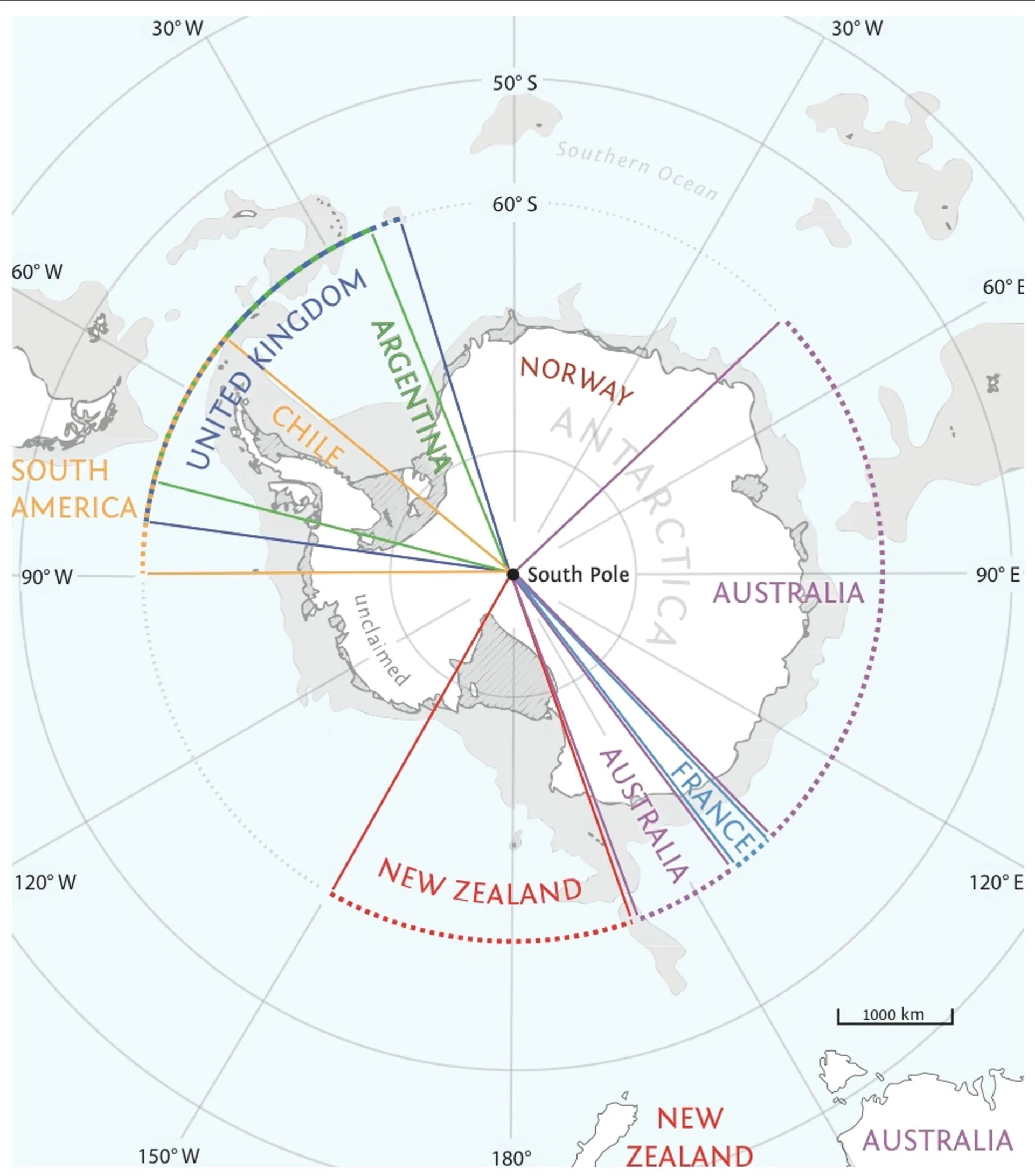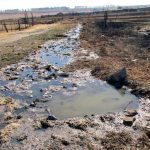POLAR POLITICS
Snow pas: South African official puts his foot in it by insisting Australia owns more than 60% of Antarctica

Dr Lisolomzi Fikizolo, South Africa’s leading polar official, has left Parliament puzzled by suggesting Australia possesses a substantial slice of the Antarctic territorial pie (spoiler: it does not).
Antarctica is not having a very good day, because it is melting. However, the 1959 Antarctic Treaty does claim to have its successes, such as devoting the White Continent to demilitarised activities and scientific research; avoiding territorial conflicts; and ensuring this 10% of Planet Earth does not belong to anyone.
Yet a briefing held to update Parliament’s environment committee on South Africa’s operations in Antarctica left some committee members scratching their heads.
Dr Lisolomzi Fikizolo, head of the South African government’s oceans and coasts division, used his briefing presentation to highlight the country’s commitments to the treaty, which has 29 decision-making states, including China, the UK, the US, France, Russia and South Africa.
If, however, South Africa’s top polar official were participating in an episode of QI, the British quiz show that awards points for interesting answers regardless of correctness, he may have scored highly for stating — erroneously — that “about nine” countries, including New Zealand and Norway, “own land in Antarctica”.
He reserved a special shout-out for Australia, which has previously asserted no less, but also no more, than 42% of Antarctica. This claim, for legal reasons specified in the treaty, is not widely recognised and cannot be enforced.
For his part, Fikizolo noted in the June briefing: “About more than 60% of Antarctica is owned by Australia.”
Treaty triumph: no Antarctic ownership
Thankfully, the iconic, freely downloadable treaty — which sets aside all land ownership — ensures that the truth is very different for the frigid continent and surrounding Southern Ocean.
Held as a global diplomatic and governance triumph, the treaty’s fêted “Article 4” means no country can actually “own” any part of Antarctica.
With the decision-making states obliged to cooperate for Antarctica’s greater environmental good, Article 4 does admittedly recognise varied positions on claims to territory by the great powers — that is, attempts to claim territory before the treaty was signed in 1959.
Yet, thanks to Article 4, while the agreement remains valid, these claims can neither be cancelled nor enforced. They are ‘parked’, for the treaty’s indefinite duration.
That is, in some respects, the whole genius of the Antarctic Treaty.
Sweet promises to keep the peace
Think of these territorial assertions in geopolitical terms, but as pies.
Before the treaty was signed in the Cold War of the late 1950s, Argentina, Australia, Chile, France, New Zealand, Norway and the UK had each scrambled to claim a territorial “pie slice” of the Antarctic continent.
From a bird’s-eye view in the 21st century, the territorial map of the bottom of the Earth now looks like a giant, carved-up pie.
That is because these seven geopolitical ‘pie cutters’ still hold the view that they each have a pie slice, but since they signed the treaty in 1959, they have agreed to set aside their slices and not own a single crumb of Antarctica.
“No acts or activities taking place while the present treaty is in force shall constitute a basis for asserting, supporting or denying a claim to territorial sovereignty in Antarctica or create any rights of sovereignty in Antarctica,” Article 4 notes.
“No new claim, or enlargement of an existing claim, to territorial sovereignty in Antarctica shall be asserted while the present treaty is in force,” it adds.
Because of Article 4, Antarctica’s relatively pristine wilderness has never seen bloody battles over a vast, potentially resource-rich wilderness that has never been mined. (A mining ban, signed in 1991 and entering into force in 1998, can also take credit for this rare achievement in international peace.)
Aussie Pie: the cold truth
In other words, in today’s contested Antarctic geopolitics, misrepresenting Article 4 could lead to unfortunate misunderstandings.
Innocent scientific studies about a melting continent could conceivably morph into territorial blueprints for continent-sized snow forts, angering major polar states, such as Australia, whose asserted slice covers a whopping 42% of the Antarctic continent.
In Fikizolo’s defence, that slice amounts to an unseemly big chunk of Aussie Pie — nearly 80% the size of Australia.
But not even the Land Down Under’s chilled pastry portion covers “about more than 60%” of the whole Antarctic pie.
In fact, most countries would argue that it is a fully ersatz pie slice.
Repeating the faux pas
When Democratic Alliance (DA) committee member Dave Bryant, also in the briefing, pressed Fikizolo for clarity, the polar official refused to retract his statement.
Whether or not other members liked it, “as I said, they [Australia] own more than 60% of the land in Antarctica, as it stands”, Fikizolo noted.
“You would find that in the new Australian Antarctic Strategy,” he added, “that is coming up very strongly.”
Well that, as it stands, is a porky pie.
And championing Australia’s so-called 60%-plus share may even get awkward for Fikizolo, because his Kremlin counterparts are of the view they found Antarctica in 1820.
(But that is a matter in dispute.)
And, like the US, Russia is known as a semi-claimant. Even though each of these states has influential research stations down there, Washington and Moscow have made zero claims to south polar territory — except for asserting the right to stake a potential territorial claim.
South Africa’s position on polar land grabs
South Africa’s formal Antarctic strategy is not even remotely impressed with the idea of territorial sovereignty claims.
“South Africa believes that Antarctica should belong to humankind and should never be apportioned to parties that happened to have been able to reach the continent before others,” says the strategy, released March 2021.
But suppose Fikizolo had now drawn up his own map of Antarctica, awarding most of it to Australia, without informing anyone?
We asked the national environment department if a colonial idea like Antarctic territorial claims would be congenial to post-apartheid South Africa, any more than it might be to India or the rest of the Global South — or the current BRICS grouping signed up to the treaty?
The department did not respond to questions.
‘Allegations with no evidence’
Meanwhile, also in the briefing, Fikizolo denied knowledge of Russia’s search for minerals in Antarctica via Cape Town.
Under the ban on mining, “any activity relating to mineral resources, other than scientific research, shall be prohibited”.
Russia has insisted its activities are just “scientific research”, but Russia’s chief state mineral explorer, Rosgeo, has also described its long-term geopolitical intentions behind the Antarctic minerals “research”.
“It has been allegations with no evidence,” Fikizolo said. South Africa had reaffirmed the long-standing mining ban alongside fellow decision-making states, including Russia, during the annual May-June meeting in Helsinki, he noted.
Fikizolo stressed that no investigation could be launched without supporting facts.
Daily Maverick has reported on the facts surrounding this case since October 2021, and the department cannot credibly claim a lack of awareness of the debate’s key elements, as it has responded to questions on verifiable sources on a number of separate occasions, including through Parliament.
DA committee members told Fikizolo his disbelief did not justify dismissing the need for further investigation, which — effectively — is precisely what he did. DM





















 Become an Insider
Become an Insider
What an idiot!
Dr Fuzikolo obviously went to the same school as another expert, Fikile Mbalula of “three oceans” fame.
Hold your breath … until the graduates of the Mpofu school of law take to the stage ! We ain’t seen nothing yet !
And if you can’t pass at the School for Idiots, there’s a woodwork class to try!
Prime example of the quality of leadership we have in our South African government.
Are we talking this planet’s Antarctica or the one on Planet Zuma?
What did he get his PhD in, Goebbels-style propaganda?
What – and I can’t stress this enough – TF is happening here?
Australia, you might want to come and teach Dr Fikizolo his job before we hurt ourselves here.
Yes, another political doctor who earned their accreditation through hard work and intellect. When Zuma said in 2015 that Africa was the biggest continent in the world and that the rivers “flowed with the continent… they don’t even cut it”, I realized that there must be a special school for idiots that the anc mostly graduated from.
Dr Lisolomzi Fikizolo is clearly not “South Africa’s leading polar official” if he doesn’t understand the Antarctic Treaty. I learned about the treaty as a child.
Why is everyone so surprised – this is par for the course with our incompetent public servants.
Embarrassing arrogance!